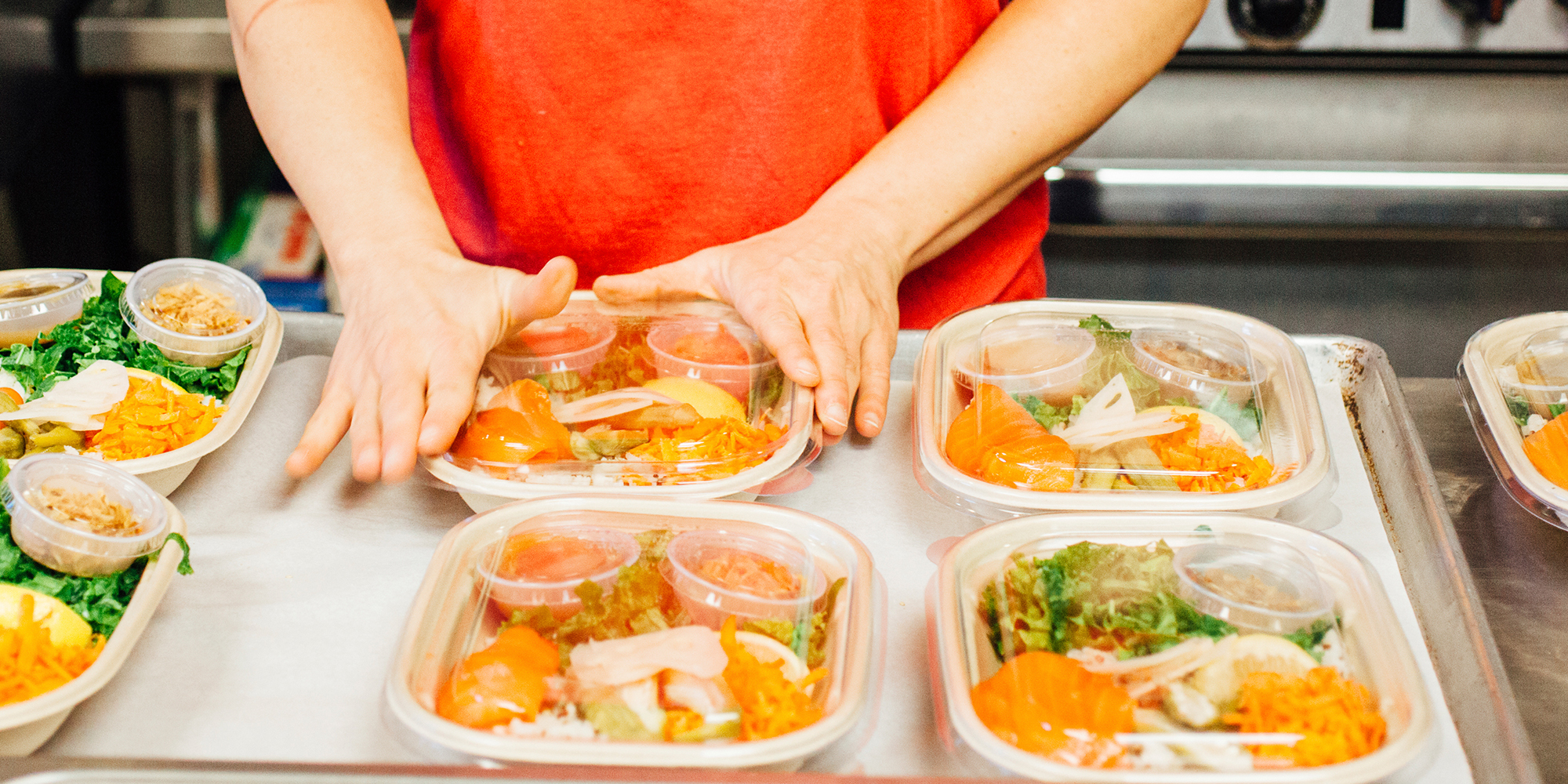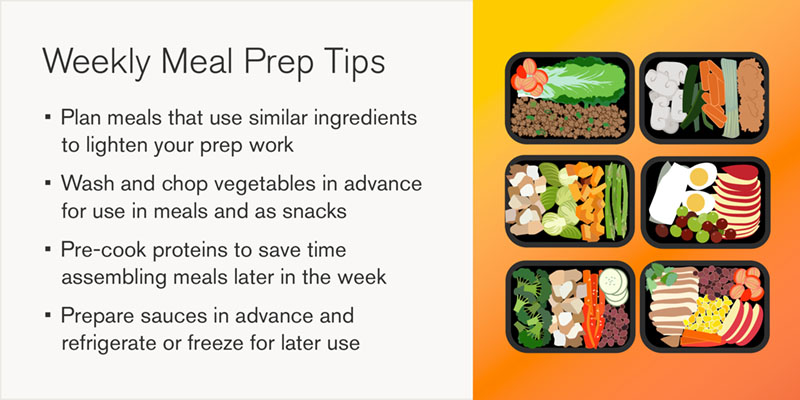How to Meal Prep: Save Time and Money While Eating Healthy
October 2, 2024
Categories: Health & Wellness, Digestive Health
 By Christopher Gozali, DO, Family Medicine
By Christopher Gozali, DO, Family Medicine
Busy schedules are unrelenting and we need our health to come first. Nobody likes to finish a long day and then spend an hour cooking to put food on the table, especially when fast food purchases save an average of 30 minutes a day.
We've put together a comprehensive guide for meal preparation to help you save time and money while maintaining a healthy lifestyle.
Why meal prep?
Meal prepping is essential to maintaining good nutrition. The benefits of a balanced diet include a boost to overall mental health, by improving mood and reducing symptoms of depression. Good nutrition also helps to reduce stress, strengthen your immune system, build stronger bones, encourage muscle growth, and reduce your risk for many diseases.
By incorporating meal prep into your routine, you can achieve a healthier lifestyle, and save time by making your meals easily accessible.
Create a meal plan
Think about your health goals and what you are trying to accomplish as you develop your meal plan. Then start small and focus on consistency. Try incorporating one meal a week that you want to weave into your schedule and build from there.
- Pick a day of the week when you could set aside a few hours to prep ahead of time for your weeknight dinners, breakfasts and lunches.
- Create a menu that is both budget-friendly and that you won’t mind eating for a handful of meals.
- Make a grocery list to help keep you organized and on budget.
- Decide what kind of meal prep you would like to do. Try batch cooking, make-ahead meals, individual grab-and-go portions, or ready-to-cook ingredients.

Safe food storage
It’s just as important to properly and safely store your food as it is to prepare your meals in advance. Prepare and store daily meals and ready-to-cook ingredients to make weeknight cooking easier for the whole family.
Follow these tips to safely store your prepared meals:
- Purchase storage containers to keep yourself organized.
- Look for containers that are BPA free, freezer safe, leak-proof and microwavable.
- Label your storage containers with the time and date they were prepared.
How and when you choose to store your food can impact the lifespan of each meal. Remember that most freezer meals need to be eaten within three to six months and most refrigerated meals within three to four days. Always be mindful of items like beef, fish or poultry that have shorter refrigeration times.
Most importantly, be sure to check health and safety guidelines if you have any questions or concerns.
Meal prepping options
There are a number of different ways you can prepare your meals ahead of time. Try these different options and see what works best for your goals!
Batch cooking
Make large portions that you can divide throughout the week or month, depending on the amount of variety you prefer in your diet.
Make-ahead meals
Create weekly meals for dinner or lunch, including large salads, lasagna, or casserole to reheat once you are ready to eat.
Individual grab-and-go meals
Invest in meal-sized containers to store your meals and grab on your way out the door. This could be anything from chicken and rice to steamed vegetables and couscous that are pre-made for when you are on the move.
Ready-to-cook ingredient meals
Once you are home from the grocery store, prepare your produce so that everything is ready to cook. This can mean chopping, dicing, pureeing, and measuring so that all you need to do is add heat and stir.
Portioning your food
Focus on incorporating whole fruits, varying your vegetables and proteins, and ensuring that at least half of the grains you eat are whole grains. Eating a healthy variety of each group reduces your risk of chronic diseases and supports healthy growth and recovery.
Each meal you pack should contain at least some, if not all, of your nutrition for the day from a given group. Generally speaking, your daily intake needs are as follows:
- Fruit: 2 cups
- Vegetables: 2 1/2 cups
- Grains: 6 ounces
- Protein: 5 1/2 ounces
- Dairy: 3 cups
For items that are not as intuitive to measure out, there are some helpful guidelines online to help you estimate. For example, about eight large strawberries is equal to one cup of fruit, or a packet of instant oatmeal is equal to one cup of grains.
Plan your meal preparation
Ultimately, everyone has unique food needs, schedules, and lifestyles. Plan your meal prepping according to what works best for you. Investing a few hours one day a week can save you precious time and money, and ensure a balanced diet.
Below, we’ve included additional resources for meal preparation:
- USDA – Seasonal Produce Guide: What's fresh in spring and summer?
- U.S. Department of Veterans Affairs – Budget-Friendly Meal Planning Guide
- U.S. Department of Agriculture – Meal Prep and Cooking Tips
Dr. Christopher Gozali is a family medicine practitioner at Loyola Medicine. He earned his medical degree at the College of Osteopathic Medicine at the University of New England and completed his residency in family medicine at MacNeal Hospital in Illinois. Dr. Gozali treats patients of all ages.
Book an appointment today to see any of Loyola's nutrition specialists by self-scheduling an in-person or virtual appointment using myLoyola.
